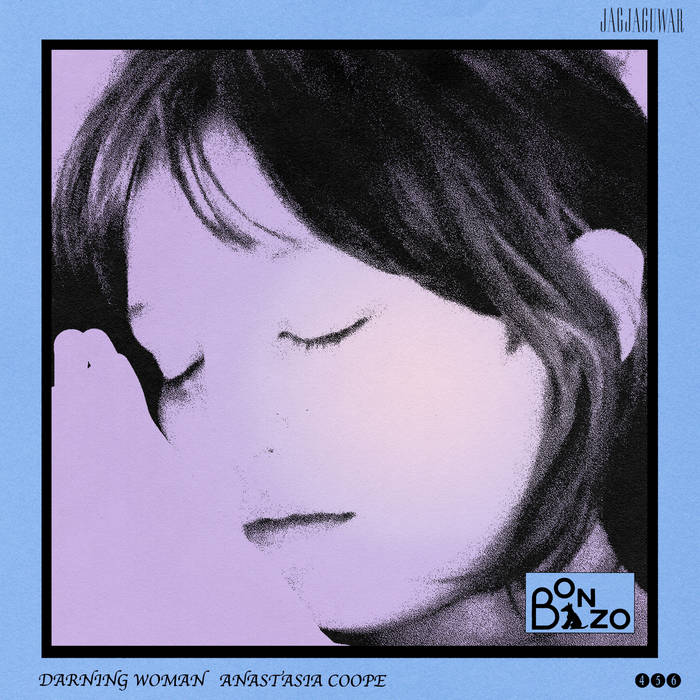Anastasia Coope’s debut album will no doubt be labelled freak folk, though perhaps vibrational frequency folk might be more suitable given how ghostly it all is. Darning Woman is quaint and pleasingly unusual in its execution, with songs like ‘Sounds Of A Giddy Woman’ and ‘Women’s Role In The War’ seemingly plucked straight from the 1940s thanks to Coope’s uncanny antenna to the spirit realm. Transposed then onto an acoustic guitar and recorded in achromatic lo-fi, it’s the missing link between R. Stevie Moore and Doris Stokes.
It should be pointed out at this juncture that the 21-year-old New Yorker may have no such inclinations towards spiritualism, while the antiquated names of songs dredged up from the imaginary hereafter – such as the title track – act as ironic feminist statements in themselves when placed into a 21st-century context. If that’s reading too much into it, there’s no denying the séance-like conditions Coope is able to achieve with her songs, strummed with a thumb and prettified with a galaxy of spectral voices that sometimes sound like a familial committee sitting in judgement. That’s especially true of the whimsical, otherworldly opener ‘He Is On His Way Home, We Don’t Live Together’, where Coope’s vibrato interweaves with a wall of wailing and warbling.
‘Sorghum’ is more controlled, a chant that could be transmitting from the middle ages, with the voices steering the song like a swarm with malicious intent. Things feel a little more up-to-date and playful on ‘What Doesn’t Work What Does’ which is a jejune interpretation of fifties girl groups, an a capella sea of voices that crackle as they collectively seep into the red. And ‘Woke Up and No Feet’ is circular and infectious like a nursery rhyme, with its nonsensical lyrics possibly hiding something sinister.
Anastasia Coope is also a painter when she’s not singing, playing, and communing with the disembodied, and that is pertinent to her style of recording, where voices are spread across the canvas unevenly, often with little regard for the mess that creates. Coope doesn’t appear to be overly concerned about cleaning things up, and that all adds to the ramshackle charm, though you wonder where she might go next after Darning Woman. The final song holds some clues, specifically in its instrumentation: ‘Return To Room’ is the only track on the album that features some plinky piano and the faint trace of horns, and while it sounds like an old-world afternoon tea dance, you suspect some snifters may have been imbibed and that the night is still young and stretching out before us.


